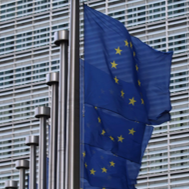
Complex negotiations are successful when they offer clear structures, build trust, and at the same time leave room for adaptation. The EU’s eastward expansion was therefore not only a geopolitical milestone, but also a lesson in strategic negotiation with consequences that continue to have an impact today.
Enlargement of the European Union
May 1, 2004
On May 1, 2004, the European Union (EU) underwent its largest expansion to date: ten countries joined the Union, namely Estonia, Latvia, Lithuania, Poland, Czechia, Slovakia, Hungary, Slovenia, Malta, and Cyprus. This enlargement was a decisive step towards bringing the former communist states closer to the European community and towards the economic and political integration of Central and Eastern Europe.
The admission of these countries was the result of intensive negotiations that lasted several years. The candidate countries had to meet the Copenhagen criteria, which required political stability and institutions based on the rule of law, a competitive market economy, and the full adoption of the EU acquis communautaire. In addition, extensive reforms were required in areas such as the judiciary, administration, and the economy to ensure integration into EU structures.
Enlargement brought about significant changes for both the new and old member states. Economically, the accession countries benefited from increased growth and investment, while the existing members benefited from expanded markets and new opportunities for cooperation. At the same time, the harmonization of living standards and the integration of different political cultures posed a challenge.
What is interesting from a negotiation perspective?
The negotiations on EU enlargement to the east offer valuable insights into complex multilateral processes. The following points are particularly noteworthy:
Importance of clear accession criteria
The establishment of the Copenhagen criteria created transparent requirements for the candidate countries. This clarity made it easier for the candidates to focus their reforms and strengthened the credibility of the enlargement process. Clear and transparent criteria are therefore essential for structuring negotiations, aligning and objectifying perceptions, and building trust between the parties.
Need for long-term preparation and adaptation
The accession countries had to implement extensive reforms in order to meet EU standards. This required forward planning and openness to new norms and practices. The EU’s eastward expansion is therefore an example of how long-term planning and a willingness to adapt can be crucial to the success of complex negotiations and integration processes.
Dealing with different interests and expectations
Both the existing and the new member states had specific interests and expectations regarding enlargement. The negotiations had to balance these diverging positions in order to reach a consensus that was acceptable to all. Successful negotiations require the ability to identify and acknowledge different interests and to find common ground through compromise.
Consideration of the (long-term) effects of negotiations
Some existing member states, such as the United Kingdom, decided to immediately open up the free movement of workers to the new member states. This led to an unexpectedly high influx of workers, which caused discontent and political tensions among parts of the population. The intensified domestic political debate was later used by Brexit supporters as an argument against the EU. It is therefore essential to realistically assess the potential (social) impact of negotiation outcomes and to plan appropriate measures to mitigate any negative effects.
Sources & Further information
- https://www.bundesregierung.de/breg-de/aktuelles/listicle-eu-osterweiterung-2274676
- https://germany.representation.ec.europa.eu/news/20-jahre-zusammen-eu-feiert-die-erweiterung-vom-1-mai-2004-2024-04-30_de
- https://www.lpb-bw.de/eu-osterweiterung
- https://www.dw.com/de/20-jahre-eu-osterweiterung-wie-gehts-weiter/a-68933304
- https://www.zdf.de/nachrichten/politik/ausland/eu-osterweiterung-eu-mitgliedstaaten-100.html
- https://www.nzz.ch/meinung/20-jahre-eu-osterweiterung-als-die-union-erst-europaeisch-wurde-ld.1828275